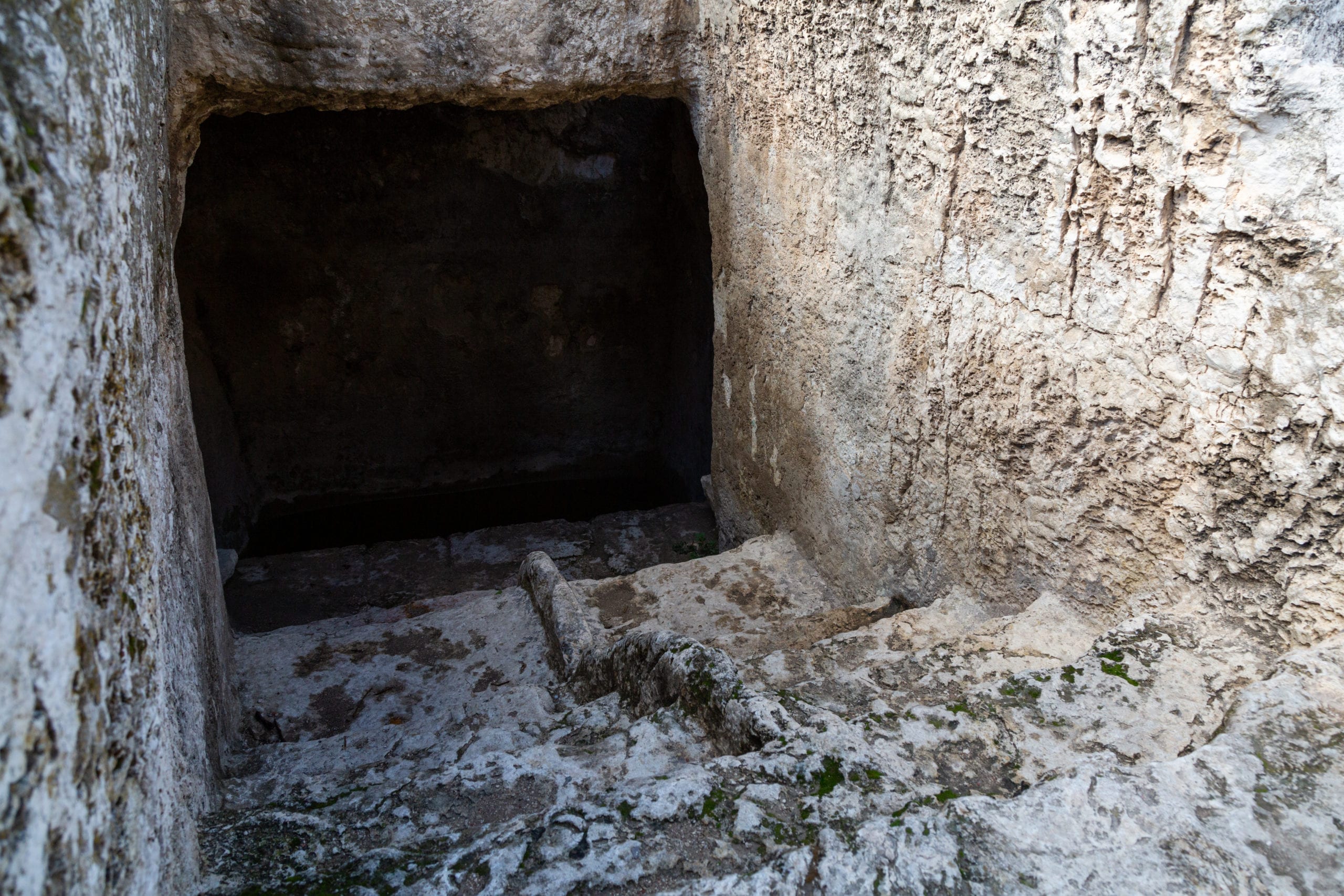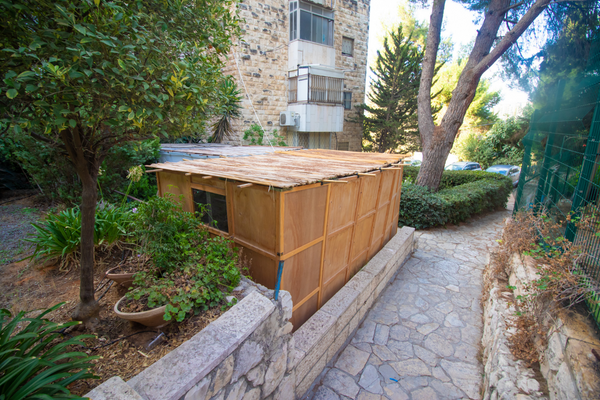
TORAH
NEVI'IM
KETUVIM
Chapter 31
Translation and Transliteration of
Listen to this chapter in Hebrew:
- Commentary
- Buy E-book
- Buy the Israel Bible
1I have covenanted with my eyes Not to gaze on a maiden.
אבְּרִית כָּרַתִּי לְעֵינָי וּמָה אֶתְבּוֹנֵן עַל־בְּתוּלָה׃
2What fate is decreed by Hashem above? What lot, by Shaddai in the heights?
בוּמֶה חֵלֶק אֱלוֹהַּ מִמָּעַל וְנַחֲלַת שַׁדַּי מִמְּרֹמִים׃
3Calamity is surely for the iniquitous; Misfortune, for the worker of mischief.
גהֲלֹא־אֵיד לְעַוָּל וְנֵכֶר לְפֹעֲלֵי אָוֶן׃
4Surely He observes my ways, Takes account of my every step.
דהֲלֹא־הוּא יִרְאֶה דְרָכָי וְכָל־צְעָדַי יִסְפּוֹר׃
5Have I walked with worthless men, Or my feet hurried to deceit?
האִם־הָלַכְתִּי עִם־שָׁוְא וַתַּחַשׁ עַל־מִרְמָה רַגְלִי׃
6Let Him weigh me on the scale of righteousness; Let Hashem ascertain my integrity.
ויִשְׁקְלֵנִי בְמֹאזְנֵי־צֶדֶק וְיֵדַע אֱלוֹהַּ תֻּמָּתִי׃
7If my feet have strayed from their course, My heart followed after my eyes, And a stain sullied my hands,
זאִם תִּטֶּה אַשֻּׁרִי מִנִּי הַדָּרֶךְ וְאַחַר עֵינַי הָלַךְ לִבִּי וּבְכַפַּי דָּבַק מֻאוּם׃
8May I sow, but another reap, May the growth of my field be uprooted!
חאֶזְרְעָה וְאַחֵר יֹאכֵל וְצֶאֱצָאַי יְשֹׁרָשׁוּ׃
9If my heart was ravished by the wife of my neighbor, And I lay in wait at his door,
טאִם־נִפְתָּה לִבִּי עַל־אִשָּׁה וְעַל־פֶּתַח רֵעִי אָרָבְתִּי׃
10May my wife grind for another, May others kneel over her!
יתִּטְחַן לְאַחֵר אִשְׁתִּי וְעָלֶיהָ יִכְרְעוּן אֲחֵרִין׃
11For that would have been debauchery, A criminal offense,
יאכִּי־הוא [הִיא] זִמָּה והיא [וְהוּא] עָוׂן פְּלִילִים׃
12A fire burning down to Abaddon, Consuming the roots of all my increase.
יבכִּי אֵשׁ הִיא עַד־אֲבַדּוֹן תֹּאכֵל וּבְכָל־תְּבוּאָתִי תְשָׁרֵשׁ׃
13Did I ever brush aside the case of my servants, man or maid, When they made a complaint against me?
יגאִם־אֶמְאַס מִשְׁפַּט עַבְדִּי וַאֲמָתִי בְּרִבָם עִמָּדִי׃
14What then should I do when Hashem arises; When He calls me to account, what should I answer Him?
ידוּמָה אֶעֱשֶׂה כִּי־יָקוּם אֵל וְכִי־יִפְקֹד מָה אֲשִׁיבֶנּוּ׃
15Did not He who made me in my mother's belly make him? Did not One form us both in the womb?
טוהֲלֹא־בַבֶּטֶן עֹשֵׂנִי עָשָׂהוּ וַיְכֻנֶנּוּ בָּרֶחֶם אֶחָד׃
16Did I deny the poor their needs, Or let a widow pine away,
טזאִם־אֶמְנַע מֵחֵפֶץ דַּלִּים וְעֵינֵי אַלְמָנָה אֲכַלֶּה׃
17By eating my food alone, The fatherless not eating of it also?
יזוְאֹכַל פִּתִּי לְבַדִּי וְלֹא־אָכַל יָתוֹם מִמֶּנָּה׃
18Why, from my youth he grew up with me as though I were his father; Since I left my mother's womb I was her guide.
יחכִּי מִנְּעוּרַי גְּדֵלַנִי כְאָב וּמִבֶּטֶן אִמִּי אַנְחֶנָּה׃
19I never saw an unclad wretch, A needy man without clothing,
יטאִם־אֶרְאֶה אוֹבֵד מִבְּלִי לְבוּשׁ וְאֵין כְּסוּת לָאֶבְיוֹן׃
20Whose loins did not bless me As he warmed himself with the shearings of my sheep.
כאִם־לֹא בֵרֲכוּנִי חלצו [חֲלָצָיו] וּמִגֵּז כְּבָשַׂי יִתְחַמָּם׃
21If I raised my hand against the fatherless, Looking to my supporters in the gate,
כאאִם־הֲנִיפוֹתִי עַל־יָתוֹם יָדִי כִּי־אֶרְאֶה בַשַּׁעַר עֶזְרָתִי׃
22May my arm drop off my shoulder; My forearm break off at the elbow.
כבכְּתֵפִי מִשִּׁכְמָה תִפּוֹל וְאֶזְרֹעִי מִקָּנָה תִשָּׁבֵר׃
23For I am in dread of Hashem-sent calamity; I cannot bear His threat.
כגכִּי פַחַד אֵלַי אֵיד אֵל וּמִשְּׂאֵתוֹ לֹא אוּכָל׃
24Did I put my reliance on gold, Or regard fine gold as my bulwark?
כדאִם־שַׂמְתִּי זָהָב כִּסְלִי וְלַכֶּתֶם אָמַרְתִּי מִבְטַחִי׃
25Did I rejoice in my great wealth, In having attained plenty?
כהאִם־אֶשְׂמַח כִּי־רַב חֵילִי וְכִי־כַבִּיר מָצְאָה יָדִי׃
26If ever I saw the light shining, The moon on its course in full glory,
כואִם־אֶרְאֶה אוֹר כִּי יָהֵל וְיָרֵחַ יָקָר הֹלֵךְ׃
27And I secretly succumbed, And my hand touched my mouth in a kiss,
כזוַיִּפְתְּ בַּסֵּתֶר לִבִּי וַתִּשַּׁק יָדִי לְפִי׃
28That, too, would have been a criminal offense, For I would have denied Hashem above.
כחגַּם־הוּא עָוׂן פְּלִילִי כִּי־כִחַשְׁתִּי לָאֵל מִמָּעַל׃
29Did I rejoice over my enemy's misfortune? Did I thrill because evil befell him?
כטאִם־אֶשְׂמַח בְּפִיד מְשַׂנְאִי וְהִתְעֹרַרְתִּי כִּי־מְצָאוֹ רָע׃
30I never let my mouth sin By wishing his death in a curse.
לוְלֹא־נָתַתִּי לַחֲטֹא חִכִּי לִשְׁאֹל בְּאָלָה נַפְשׁוֹ׃
31(Indeed, the men of my clan said, “We would consume his flesh insatiably!”)
לאאִם־לֹא אָמְרוּ מְתֵי אָהֳלִי מִי־יִתֵּן מִבְּשָׂרוֹ לֹא נִשְׂבָּע׃
32No sojourner spent the night in the open; I opened my doors to the road.
לבבַּחוּץ לֹא־יָלִין גֵּר דְּלָתַי לָאֹרַח אֶפְתָּח׃
33Did I hide my transgressions like Adam, Bury my wrongdoing in my bosom,
לגאִם־כִּסִּיתִי כְאָדָם פְּשָׁעָי לִטְמוֹן בְּחֻבִּי עֲוׂנִי׃
34That I should [now] fear the great multitude, And am shattered by the contempt of families, So that I keep silent and do not step outdoors?
לדכִּי אֶעֱרוֹץ הָמוֹן רַבָּה וּבוּז־מִשְׁפָּחוֹת יְחִתֵּנִי וָאֶדֹּם לֹא־אֵצֵא פָתַח׃
35O that I had someone to give me a hearing; O that Shaddai would reply to my writ, Or my accuser draw up a true bill!
להמִי יִתֶּן־לִי שֹׁמֵעַ לִי הֶן־תָּוִי שַׁדַּי יַעֲנֵנִי וְסֵפֶר כָּתַב אִישׁ רִיבִי׃
36I would carry it on my shoulder; Tie it around me for a wreath.
לואִם־לֹא עַל־שִׁכְמִי אֶשָּׂאֶנּוּ אֶעֶנְדֶנּוּ עֲטָרוֹת לִי׃
37I would give him an account of my steps, Offer it as to a commander.
לזמִסְפַּר צְעָדַי אַגִּידֶנּוּ כְּמוֹ־נָגִיד אֲקָרֲבֶנּוּ׃
38If my land cries out against me, Its furrows weep together;
לחאִם־עָלַי אַדְמָתִי תִזְעָק וְיַחַד תְּלָמֶיהָ יִבְכָּיוּן׃
39If I have eaten its produce without payment, And made its [rightful] owners despair,
לטאִם־כֹּחָהּ אָכַלְתִּי בְלִי־כָסֶף וְנֶפֶשׁ בְּעָלֶיהָ הִפָּחְתִּי׃
40May nettles grow there instead of wheat; Instead of barley, stinkweed! The words of Iyov are at an end.
TA-khat khi-TAH yay-TZAY KHO-akh v'-TA-khat s'-o-RAH vo-SHAH TA-mu div-RAY i-YOV
מתַּחַת חִטָּה יֵצֵא חוֹחַ וְתַחַת־שְׂעֹרָה בָאְשָׁה תַּמּוּ דִּבְרֵי אִיּוֹב׃
![]() 31:40 The words of Iyov are at an end
31:40 The words of Iyov are at an end
These words depict Iyov’s exhaustion. After his long peroration lamenting his many misfortunes and speculating as to their possible causes, Iyov suddenly gives up. He no longer has the strength to fight or the energy to protest. Iyov spends a lot of time and emotional energy trying to make sense of his suffering. Due to his intense suffering, it was difficult for Iyov to recognize, as King Shlomo did, the truth that “For whom Hashem loves, He rebukes” (Proverbs 3:12). Often, suffering is brought upon a person as a mark of God’s love, while He abandons those for whom He has no regard to the whims of chance. King David also realizes that sometimes suffering is really a gift, when he says “Happy is the man whom You discipline, Hashem,” (Psalms 94:12). This idea is reflected in a well-known statement by Rabbi Simeon Bar Yochai (Berachot 5a): “Three gifts were given by God through suffering; Torah, the Land of Israel, and the world to come.” The righteous are able to perceive that suffering paves the way to bearing the greatest gifts of God to His people.







